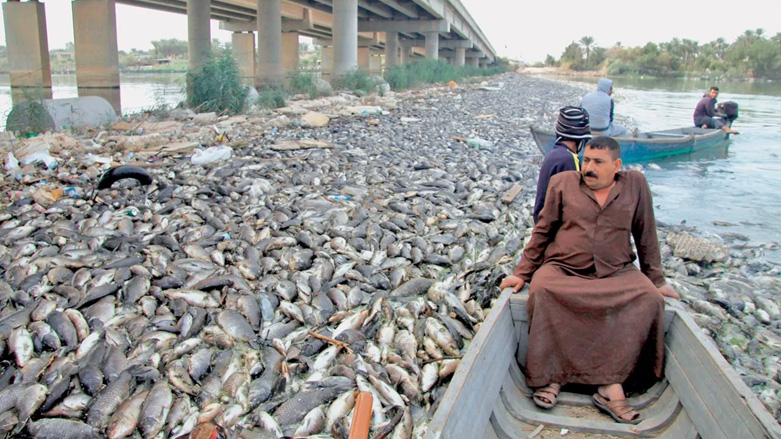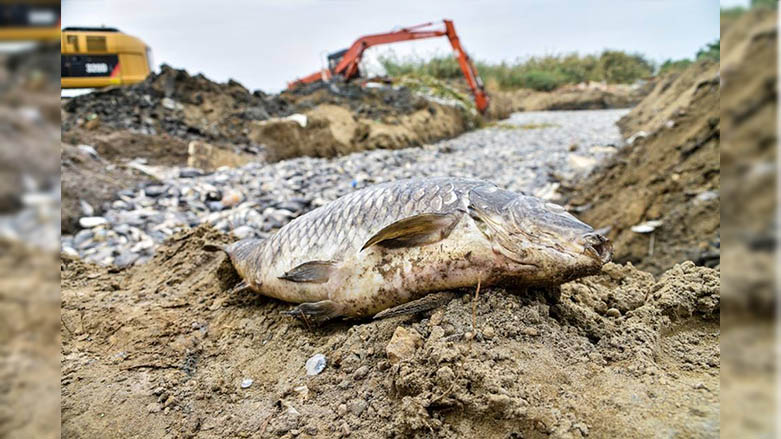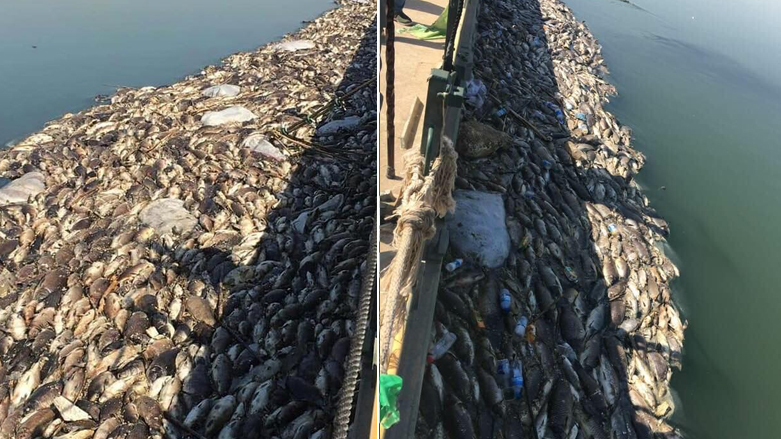Fish disease caused death of millions of farmed carp in Iraq: UN

ERBIL (Kurdistan 24) – Test results from international laboratories confirm that a fish disease, not pollution caused the death of millions of farmed carp in Iraq in late 2018, the United Nations Environment Programme stated on Wednesday.
“The carp suffered from the Koi Herpes Virus (KHV), a lethal disease known to cause almost 100 percent mortality rates in carps,” the statement read.
“Based on these results, we can, therefore, rule out that chemical contamination played a role in the fish kill, which should reassure the public that the farmed carp is safe to eat.”
The UN’s test comes after millions of mostly caged farmed carp in Iraq’s central Euphrates region were wiped out in October 2018, an event which sent the country into a major panic.
Fear spread that mysterious pollution that could also poison people caused the fish kill, while fish farmers agonized over their losses as the source of their livelihoods abruptly vanished.
“The scale of the fish kill was so huge, we had excavators working for four days clearing the fish from the river,” Ala Alwan, Iraq’s Minister of Health and Environment, said. Alwan personally inspected the situation on the ground once news of the incident broke out.
“We also used oil spill booms to contain and prevent the fish from drifting downstream, especially as many fish farmers rashly dumped the dead carp into the Euphrates River,” he added.
After it was faced with unprecedented fish mortality, the Federal Government of Iraq decided to request emergency technical assistance from the World Health Organization (WHO), the Food and Agriculture Organization (FAO), and UN Environment to help determine the cause of the sudden deaths.
UN Environment, WHO, and FAO rapidly organized for the fish, water, sediment, and fish feed samples to be shipped to internationally-accredited laboratories. Comprehensive chemical and microbiological tests were carried out by three different laboratories, including in Switzerland, Jordan, and Italy.
For all the samples the Ministry of Health and Environment took, test results showed no significant contamination from heavy metals, hydrocarbons, or pesticides.
“Unlike water, which only gives a snapshot of environmental conditions at a specific point in time, sediment acts as a storage reservoir for contaminants,” John Pote explained, Pote is the Head of the Laboratory of Environmental Microbiology at the University of Geneva. He coordinated the laboratory study commissioned by the UN Environment.
“Based on these results, we can, therefore, rule out that chemical contamination played a role in the fish kill, which should reassure the public that the farmed carp is safe to eat,” he added.
Thomas Wahli, who heads the Swiss Reference Laboratory for Notifiable Diseases, stated that “high loads of Cyprinid herpesvirus DNA in the gill, kidney and brain fish tissue revealed that the carp suffered from the KHV disease.”
Minister Alwan also stressed that this is the first case of KHV disease in Iraq, and as such it is significant the World Organisation for Animal Health is notified.
“We need to control fish farm numbers and raise farmers’ awareness on the appropriate procedures to follow to prevent and rapidly contain similar outbreaks in the future,” he asserted.
Editing by Karzan Sulaivany


